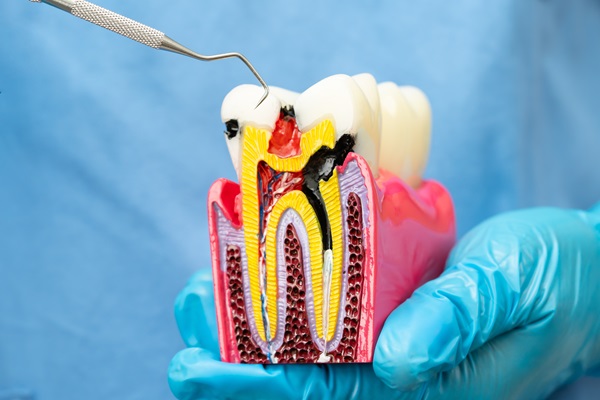Root Canal Aftercare: Tips for a Smooth Recovery

Finding out that you need a root canal can be nerve-racking. Caring for the treated tooth can be even more stressful. Knowing what to do after the treatment can help you prepare well for it. Here are some tips for a smooth and quick recovery after your root canal.
Refrain from eating right after the procedure
The patient must wait to eat as soon as the procedure is over. The anesthesia will still be in effect for hours after the procedure. Eating and drinking will be okay when the numbness fades. The patient should not chew on the treated tooth until the tenderness diminishes.
Apply a cold compress
Place a cold compress on the side of the treated tooth after the root canal. Research shows that cold therapy reduces swelling and pain. Wrap the ice pack in a towel and place it on the cheek for about 10 to 15 minutes. Repeat this treatment many times a day.
Follow instructions when taking medications
The dentist will prescribe antibiotics and pain relievers after the root canal. Follow the strict directions when taking them. These medications will reduce the swelling and pain. They will also prevent the onset of infection.
Take some time off to rest
Healing is important after every surgery. A root canal is an invasive procedure. Take a day or two of complete rest. Doing so will allow the body to pour resources into healing the mouth well.
Gargle with warm salt solution
A warm salt solution can help keep the mouth bacteria- and debris-free. It can also keep the gums healthy as the tooth heals after the root canal. Mix half a teaspoon of salt in a cup of warm water. Remember to be gentle when gargling.
Avoid consuming tobacco and alcoholic drinks
Studies reveal that tobacco and alcoholic drinks impair proper blood oxygenation and circulation. These substances can prevent the root canal-treated tooth from healing right away. They can even increase one’s risk of infection. It is ideal to quit consuming these products if the patient will undergo any oral surgery.
Maintain a soft diet
Eat soft foods for the first three days after the root canal. These foods will prevent the patient from damaging or putting pressure on the treated tooth. It is ideal to stock up on these foods before the procedure. Soups, scrambled eggs, and mashed potatoes are common examples of soft foods.
Wear a nightguard
Some people grind their teeth at night or during stressful times. This habit can harm the root canal-treated tooth. The dentist can provide a custom-fit nightguard. Wearing this dental device at night can protect the said tooth from damage.
Keep the follow-up appointments
It is important to see the dentist at the recommended times after the root canal. The visits will enable the dentist to keep an eye on the tooth’s healing. These checkups also ensure that the tooth receives proper treatment. The dentist will be able to address any problem that may arise during recovery.
Proper root canal aftercare is important to have a painless smile
Every general dentist aims to keep the tooth intact. A root canal is one way to achieve this goal. It may be invasive, but it relieves pain and keeps the tooth intact. Working with your provider can help you recover well and enjoy your smile for years.
Request an appointment here: https://www.mpdentalarts.com or call Moskowitz and Penner Dental Arts at (732) 583-3373 for an appointment in our Aberdeen Township office.
Check out what others are saying about our dental services on Yelp: Root Canal in Aberdeen Township, NJ.
Related Posts
Oral injuries that lead to severe bleeding in the mouth count as dental emergencies. Blood clots have a more challenging time forming in the mouth, and deep cuts in the mouth can lead to significant blood loss without the care of an emergency dentist. Waiting up to a few weeks for a regular appointment is…
If you've knocked out a tooth, it's an emergency dentistry situation, and you should call your dentist immediately. If they can't see you right away, an emergency dentist can help you in the meantime by putting the tooth back in place and providing emergency dental care until you can get to the dentist's office. Read…
Temporomandibular joint (TMJ) disorders can cause a lot of discomfort and impact everyday activities such as eating and speaking. Fortunately, TMJ treatment options by an oral surgeon can help alleviate pain, restore function, and improve your overall quality of life. These treatments are tailored to your specific needs, addressing both the symptoms and underlying causes…
Invisalign® is one of the most popular ways to undergo teeth straightening treatment. However, with that being said, it is still crucial to maintain good oral hygiene throughout the process. Keep reading to find out what a general dentist has to say about brushing and flossing. Outlined below are a few tips on brushing and flossing…
